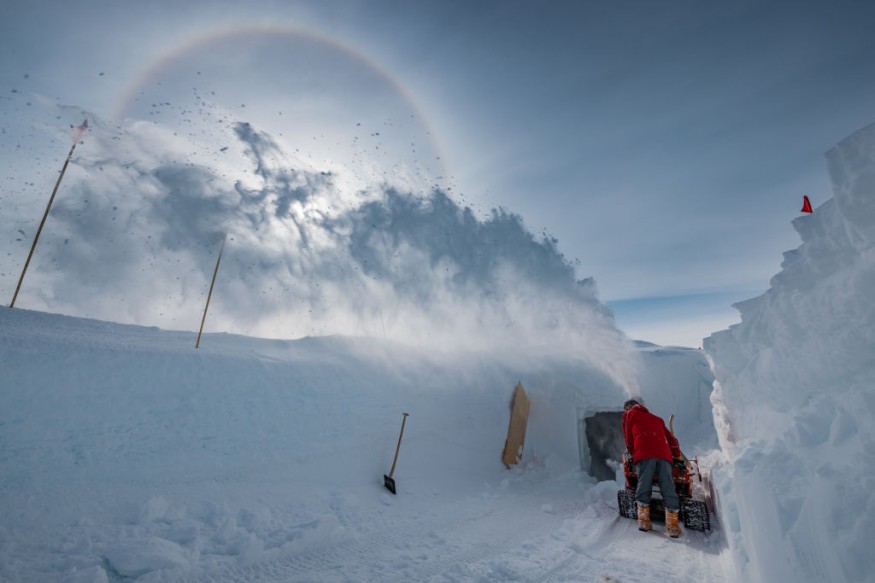
The latest research discovered that Greenland's ice melted about 400,000 years ago due to a warming event. Researchers raised concerns over the vulnerability of the region to climate change.
Recent reports noted the rapid melting of Greenland ice sheets that could result in global sea level rise.
In the previous news, CNN reported that the Greenland and Antarctic ice suffered from rapid melting due to rising global temperatures.
The report looked into the 50 satellite survey data in Greenland and Antarctica (From 1992 to 2020) and discovered the rapid melting in the regions.
However, research published in Journal Science showed that Greenland ice melted about 400,000 years ago due to a warming event.
Greenland's warming event
The latest reports published in Sky News and USA Today showed that Greenland became ice-free and green about 400,000 years ago.
Researchers have been studying the ice and melting in Greenland, which will become helpful in understanding the potential impact of climate change and warming events on global sea level rise.
The researchers explained that they looked into the ice core's sediment. The study found that leaves and moss emerged in the region, contrary to previous researchers indicating that Greenland ice had been million years.
In the CNA report, the researchers were surprised after discovering the moss and leaves based on the ice core extracted by 1,390.
Paul Bierman from the University of Vermont explained via the USA Today report that the ice in the region is considered fragile.
Ice melting in Greenland resulted in a global sea-level rise, reaching about five feet.
The most worrying in the study revealed that the region could be more vulnerable to climate change and warming events, which could lead to another global sea level rise.
Professor Bierman added that the study showed a bulletproof that Greenland ice melted due to warming events.
Bierman is a co-author of the study.
Due to the potential threat of global sea level rise, the result showed that coastal communities and populations could be vulnerable.
Climate change and global heating
According to the National Oceanic and Atmospheric Administration (NOAA) report, climate change has been the main concern, worsened by global warming.
From 1901 to 2020, the reports explained that Global Temperatures managed to soar to 1.98°F, urging communities and adapt policies that could mitigate the effects of human-induced climate change.
Climate change could help worsen the sea-level rise, flooding and drought conditions.
In a recent report, the Antarctic and Southern Ocean Coalition raised concerns over the rapid melting in Antarctica-the effects of increasing global heating harm aquatic animals, especially the population of penguins.
The report highlighted that a few feet of global sea level rise could harm people significantly, resulting in displacement.
Did you know?
According to Visit Greenland's website, Greenland is considered the biggest island in the world in terms of area, with amazing history and aquatic environment.
Related Article : Hawaii's Hanauma Bay's 88% Usable Area Could Submerge by 2030 Due to Sea-Level Rise, New Study Predicts
For more similar stories, don't forget to follow Nature World News.
© 2025 NatureWorldNews.com All rights reserved. Do not reproduce without permission.





